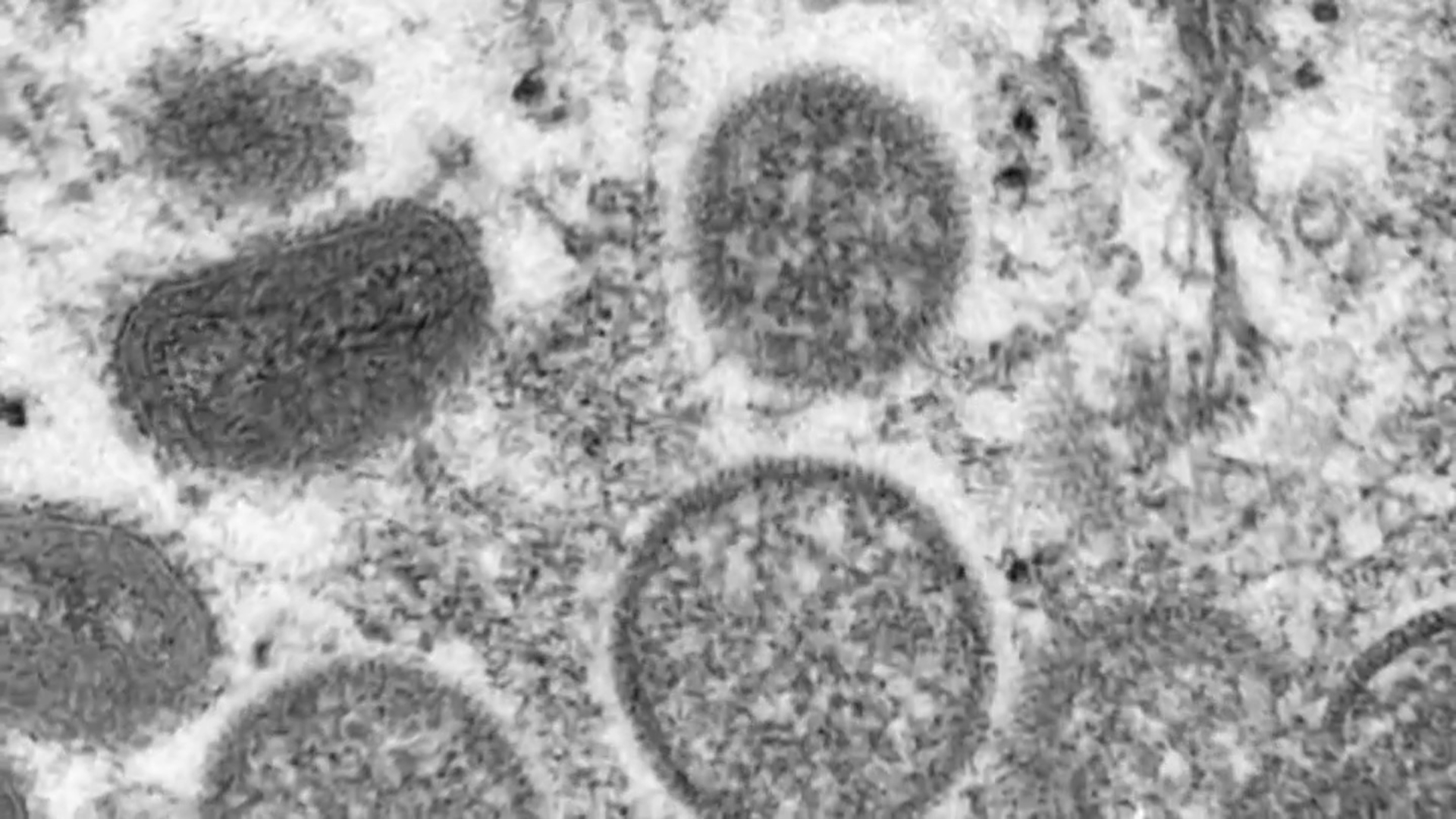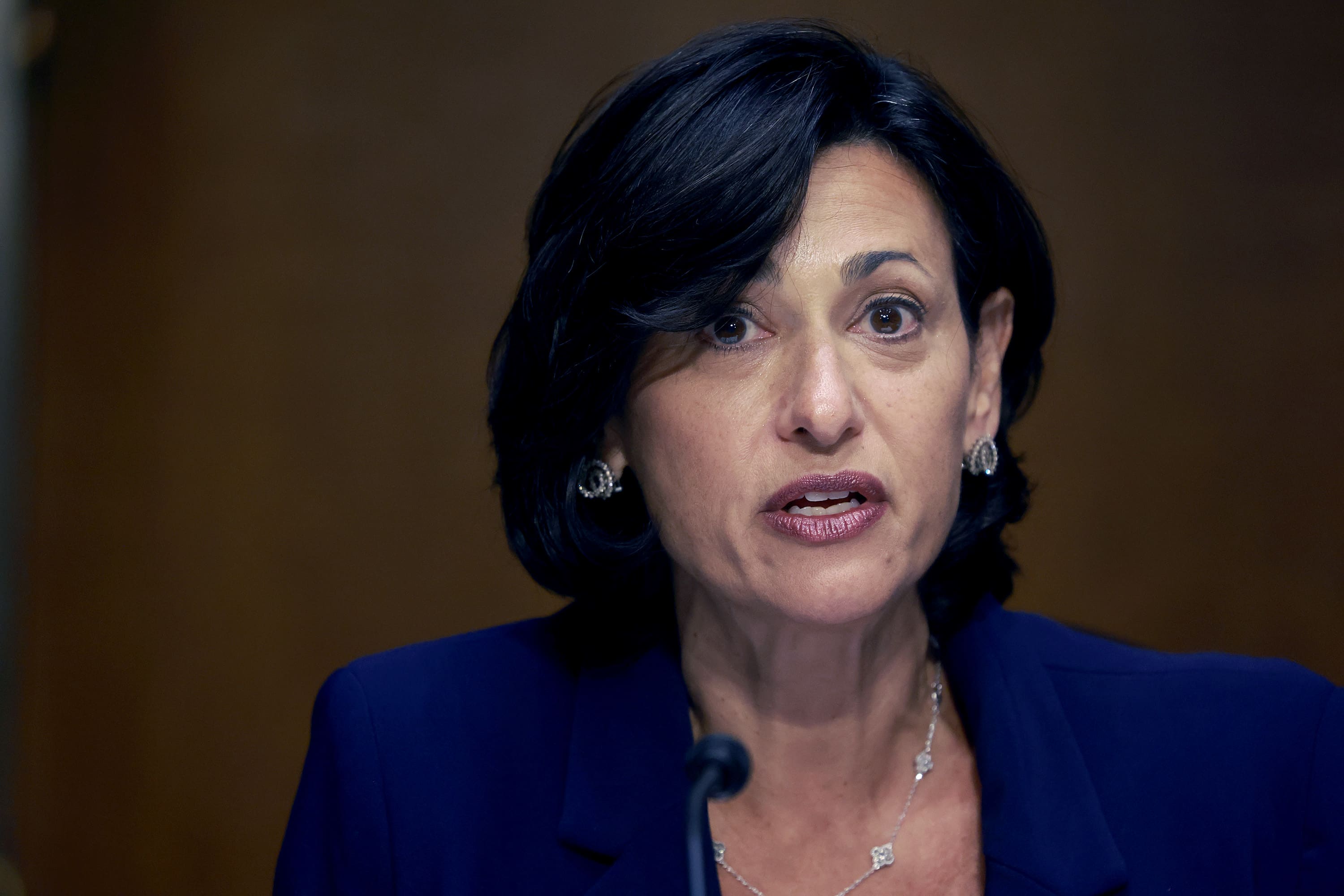Massachusetts health officials have announced 42 more monkeypox cases in the last week, bringing the state's total to 157.
The Massachusetts Department of Public Health provides monkeypox updates on Thursdays. State cases increased by approximately 36.5% since last week. The department noted that 6,617 U.S. cases have been identified by the Centers for Disease Control and Prevention.
WATCH ANYTIME FOR FREE
Stream NBC10 Boston news for free, 24/7, wherever you are. |
Monkeypox is rarely fatal, and there have been no deaths in the U.S. during the current outbreak. A U.S. public health emergency was declared Thursday, a move that could facilitate access to emergency funds, allow the Biden administration to collect more data about cases and vaccinations, accelerate vaccine distribution and make it easier for doctors to prescribe treatment.
Get updates on what's happening in Boston to your inbox. Sign up for our News Headlines newsletter.
The DPH is giving out the vaccine at clinics, initially limited to Boston and Provincetown due to limited supply. The program has since expanded to include clinics in Worcester, Springfield, Lawrence, New Bedford, Framingham and Randolph. Eligibility limits on who can get them remain in effect.
As of Thursday, Massachusetts has administered 5,875 doses of the vaccine.
School considerations
With cases increasing, some infectious disease experts saying we should keep an eye on college campuses when students go back to school.
"All students should be prepared to change their behavior, erring on the side of caution, if monkeypox spreads to campuses," said Dr. Rachel Cox, an expert in epidemiology and infectious diseases at MGH Institute of Health Professions.
Cox explained that due to the nature of college life, students should keep the risk of monkeypox in mind.
"I think it's definitely possible for college campuses to be the next hot spot," said Cox. "It's obviously an area where there's a lot of close contact, living in dorms, and there also tends to be a lot more sexual activity and experimentation."
She expects the numbers to grow more in the weeks and months ahead, and she says college campuses need to be prepared.
"I think they should be on high alert for this upcoming storm, possibly," said Cox. "They should be prepared for a plan in place for distribution of vaccines, testing and treatment if need be."
NBC10 reached out to Northeastern, Boston University, Boston College, Harvard and Tufts to find out what plans they have for the new school year.
Only Tufts has responded so far and said it had not yet issued guidance to the school community.
What is monkeypox?
Monkeypox was first discovered in 1958, when outbreaks occurred in colonies of monkeys kept for research — resulting in its name.
The first case in a human was reported in 1970 in the Democratic Republic of the Congo, which still has the majority of infections. Other African countries where it has been found: Cameroon, Central African Republic, Cote d’Ivoire, Democratic Republic of the Congo, Gabon, Liberia, Nigeria, Republic of the Congo and Sierra Leone.
Human symptoms of monkeypox are similar to but milder than the symptoms of smallpox, the CDC says. It presents itself as a flu-like illness accompanied by lymph-node swelling and rash on the face and body.
Monkeypox starts off with fever, headache, muscle aches, and exhaustion. Monkeypox also causes lymph nodes to swell, something that smallpox does not. The incubation period is usually 7−14 days but can range from 5−21 days.
The CDC is urging healthcare providers in the U.S. to be alert for patients who have rashes consistent with monkeypox, regardless of whether they have traveled or have specific risks for monkeypox. See more information from the travel notice here.
How do you catch monkeypox?
The CDC issued new monkeypox guidance earlier this month as the number of suspected cases nationwide boomed, marking America's largest-ever outbreak of monkeypox, which typically has been confined to other continents.
While the CDC says the risk to the general public remains low, people are urged to avoid close contact with those who are sick, including those with skin or genital lesions, as well as sick or dead animals. Anyone displaying symptoms, like unexplained skin rash or lesions, should reach out to their healthcare providers for guidance.
What you should do if you think you might have monkeypox
Anyone with a rash that looks like monkeypox should talk to their healthcare provider, even if they don’t think they had contact with someone who has monkeypox. According to the CDC, people who may be at higher risk might include but are not limited to those who:
- Had contact with someone who had a rash that looks like monkeypox or someone who was diagnosed with confirmed or probable monkeypox
- Had skin-to-skin contact with someone in a social network experiencing monkeypox activity, this includes men who have sex with men who meet partners through an online website, app or social event
- Traveled outside the U.S. to a country with confirmed cases of monkeypox or where monkeypox activity has been ongoing
- Had contact with a dead or live wild animal or exotic pet that exists only in Africa or used a product derived from such animals
What are the symptoms of monkeypox?
Human symptoms of monkeypox are similar to but milder than the symptoms of smallpox, the CDC says. It presents itself as a flu-like illness accompanied by lymph-node swelling and rash on the face and body.
Monkeypox starts off with fever, headache, muscle aches, and exhaustion. Monkeypox also causes lymph nodes to swell, something that smallpox does not. The incubation period is usually 7 to 14 days but can range from 5 to 21 days.
The CDC is urging healthcare providers in the U.S. to be alert for patients who have rashes consistent with monkeypox, regardless of whether they have traveled or have specific risks for monkeypox. See more information from the travel notice here.
Get updates on what's happening in Boston to your inbox. Sign up for our News Headlines newsletter.



